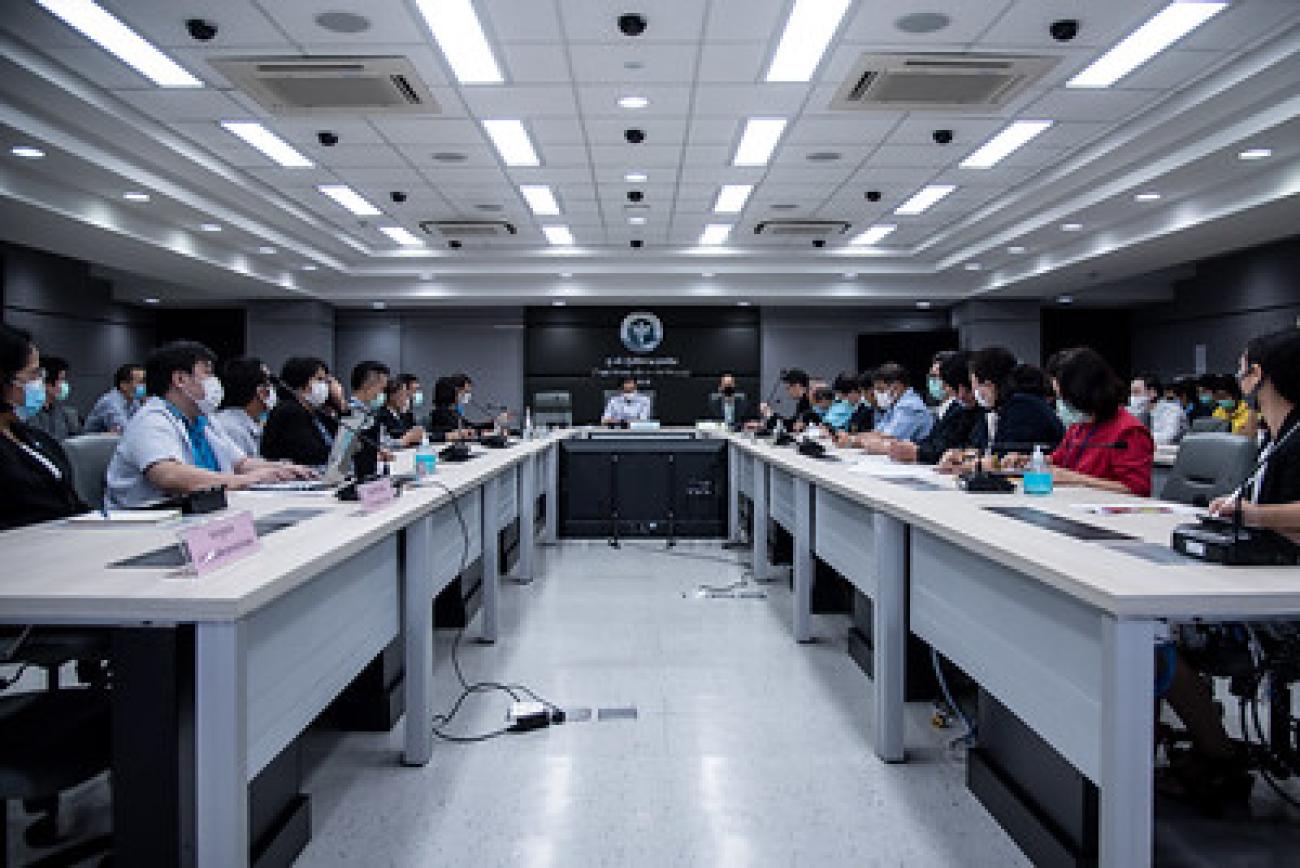Thailand has launched a comprehensive plan to ensure the health sector is well prepared to respond to a possible future outbreaks of the COVID-19 pandemic and to future infectious disease emergencies.
A business continuity plan (BCP) and a training manual have been developed by the Department of Medical Services Foundation, together with Department of Medical Services, to guide healthcare facilities in developing and test their own BCP. A pilot project under the plan has been implemented in three hospitals and will soon be expanded to thirty-one hospitals under supervision of the Department of Medical Services and other regional and provincial hospitals across country.
At a recent workshop, a table-top simulation exercise was conducted to determine how well the Business Continuity Plan would perform in the event of future outbreaks of COVID-19 in Thailand. The main objectives of the exercise were to develop a cooperative referral network between medical institutions under the Department of Medical Services, and to give the health workers practice in resource management, including personnel, facilities, protective equipment and medical supplies in a crisis situation. This simulation enhanced the management capacity of health institutions to maintain essential medical services during an outbreak by ensuring that all levels are properly trained and equipped.
Dr. Somsak Akksilp, Director-General of the Department of Medical Services said, “If there will be a 2nd wave of COVID-19 in Thailand, we hope that all healthcare services will not be interrupted or delayed. We must consider initiatives such as telemedicine for safety as well as efficiency. With the BCP, we have an opportunity to improve our medical services under the new normal setting. This is the best time to prepare as I always mentioned that we should be a few steps ahead.”
risis. For example, participants used cards representing the various roles of hospital staff and available resources such as respirators, bed capacity, test kits, and ambulances to simulate conditions during a major outbreak.
Addressing the participants of the table-top exercise, Dr. Daniel Kertesz, WHO Representative for Thailand said, “The table-top exercise is important practice for what is very likely to happen in real-life...”
Ms. Anita Sharma, Dr. Daniel A. Kertesz, Dr. Richard Brown, Dr. Mark Simmerman and Ms. Phiangjai Boonsuk contributed to this article.
Originally published on WHO Thailand's website.


